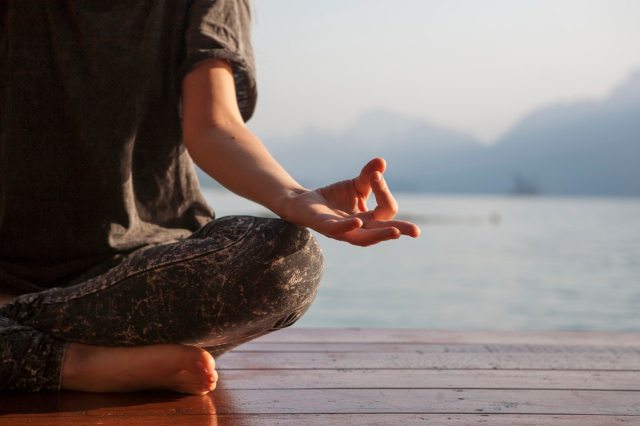For years Americans have reported a growing stress epidemic marked by rising rates of stress-related disorders and diseases, from anxiety and depression to hypertension and cardiovascular disease.
The links between psychological stress and physical illness are firmly proven. When you are under stress your body produces adrenaline, cortisol and other stress hormones that can impair its ability to fight off illness and lead to a wide range of diseases.
What is stress? At its most basic level, stress is an imbalance of energy. The energy that you spend focusing on negativity and fear is directly proportional to your stress level. Unfortunately this can become a pattern in your life due to the influence of unresolved feelings from past traumatic and difficult events – what I call trapped emotions.
As you live through the days and years of your life you are continually experiencing emotions, both positive and negative. Life can be difficult and emotions can sometimes feel overwhelming.
Sometimes, for reasons that we do not yet understand, people are not able to fully process emotions and move on. In these cases, the energy of the emotion becomes “trapped” within the physical body. So instead of moving beyond an angry moment or a temporary bout with grief or depression, you may find yourself struggling with ongoing feelings you are unable to shake. These are trapped emotions and their negative energy can remain hidden for years, potentially causing significant physical and emotional stress.
Trapped emotions can cause you to make the wrong assumptions, overreact to innocent remarks, misinterpret behavior and damage your relationships. They can create depression, anxiety and other unwanted feelings and wreak havoc with your physical health, causing pain, fatigue and illness.
The circumstances of modern life that are causing people to report epidemic levels of stress are not likely to change any time soon. But we can take steps to guard our health from the harmful effects of stress. Here are some simple practices to help you live with more calm and happiness and less stress and anxiety in the New Year:
Recognize that trapped emotions influence our choices. For example, if you have a trapped emotion of anger from a past event, you’ll be more likely to become angry when future situations arise that may upset you. This is because part of your body is already resonating with anger and is just waiting for someone (or something stressful) to set you off.
Discover and release emotional baggage. Energy psychology techniques such as The Emotion Code or The Body Code can help you lower your stress level by quickly getting clear to the underlying causes of negative emotional choices and nagging, harmful thoughts.
Listen to your body (and when necessary, say “no”). Pay attention to what your body needs, including healthy food, plenty of water, exercise and rest. When you find yourself feeling low on energy, exhausted or easily triggered by trying circumstances, your body may be telling you that you need more rest. Take a nap, go to bed early or sleep in on your day off. And don’t be afraid to say “no” to if you catch yourself trying to do too much. Don’t volunteer to take on additional tasks if doing so interferes with your health or family time or if it feels like it’ll cause too much stress for you. It won’t be worth it.
Exercise daily. Exercise as simple as getting outside and walking is a natural, drug-free way to combat stress, anxiety and depression. Moving your body throughout the day burns away stress hormones such as adrenaline and cortisol that can otherwise linger in your system for up to 24 hours, damaging your immune system and organs. Exercise and physical activity also boosts levels of endorphins, the hormones that make you feel good and reduce your reception of pain. Plus, it’s good for you.
Take care of yourself emotionally. You may need specific things such as the emotional support of a spouse, a lunch date with a friend or even just some time alone. Sometimes you just need to unplug, whether it’s a break outdoors during a busy workday, a weekend getaway or a weeklong vacation. Look for ways to build regular breaks into your day to help you reset and give you the mental and emotional energy you need.
Communicate with love. If the people you are with have you feeling stressed, take a breather. You might go outside for a few minutes to get some fresh air. Be kind to everyone, including yourself. Make sure you’re not overreacting. None of us communicate perfectly. Try to understand what others really mean, not just what they say and give people the benefit of the doubt. Ask for clarification and react appropriately, with kindness, love and forgiveness. Some people really don’t have a handle on their behavior, but it doesn’t have to affect how you feel or be your problem.
Practice daily gratitude. Make a list every day of the things in your life that are good. Keeping a gratitude journal will help keep your focus on the positive, making you more resilient and less susceptible to the damaging effects of stress.
By learning to pay attention to and understand your body’s signals, you can alter how you respond to stressful circumstances and break out of old, self-defeating patterns. Remember to take care of your emotional health and you will be better prepared to cope with whatever comes your way in 2019 and beyond.











